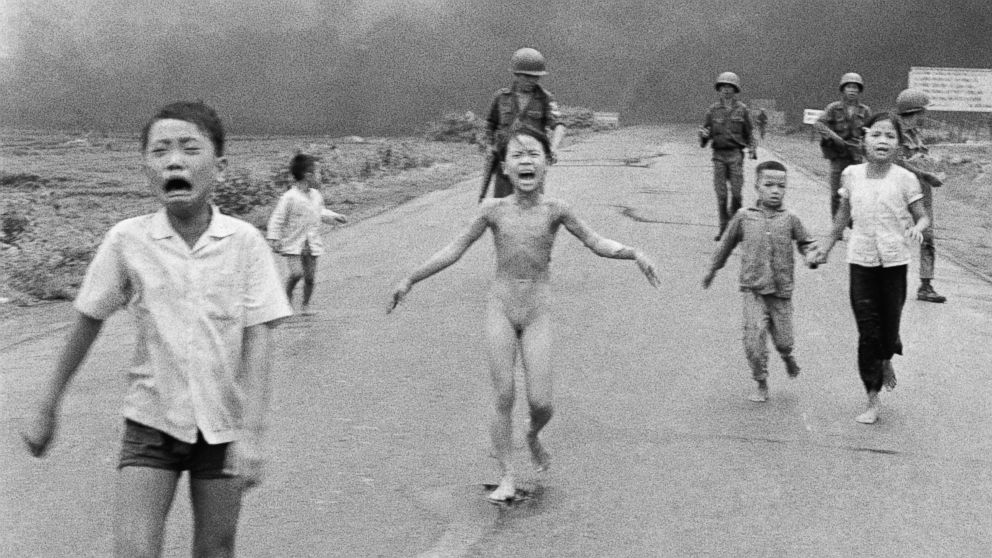About Face: Iconic Napalm Girl Photo to Be Permitted on Facebook
Facebook said it recognizes "the history and global importance of this image."

— -- In an about face, Facebook said that it would allow users to post a Pulitzer-winning 1972 photograph of a girl running naked from a Napalm attack during the Vietnam War after it was deleted by the social network's algorithms.
The iconic photo -- which was taken by Associated Press photographer Nick Ut -- was removed from Norwegian Prime Minister Erna Solberg's Facebook account earlier today.
The prime minister had posted the photo in solidarity with protests that began last month after Facebook censured the photo from a Norwegian author's page. The photo -- which shows the child, Kim Phuc, naked -- violated Facebook's policies on nudity.
In announcing the reversal, Facebook said in a statement that "because of its status as an iconic image of historical importance, the value of permitting sharing outweighs the value of protecting the community by removal."
The social network said that a photo of "a naked child would normally be presumed to violate our Community Standards, and in some countries might even qualify as child pornography," but in this case company officials recognize "the history and global importance of this image."
Facebook said it would be modifying its review mechanisms to allow users to share the image, but warned that it would take several days for the photo to reappear on the network without problems.
Earlier, the company had said that it was "difficult to create a distinction between allowing a photography of a nude child in one instance and not others," according to the AP.
Solberg, the prime minister, told the AP in a phone interview that "removing this kind of image is to edit our common history," and that, "today, pictures are such an important element in making an impression that if you edit past events or people, you change history and you change reality."
The removal sparked widespread backlash. Denmark's journalism union urged individuals to share an open letter written by the editor of a Norwegian newspaper, accusing the network of overstepping its bounds.
Meanwhile, the German Justice Minister said, "Illegal content should vanish from the internet, not photos that move the whole world."
This is not the first time that the photo has been the subject of debate.
Editors at the AP discussed whether or not to transmit the photo when it first came to their attention during the war, the agency said in its report on the Facebook decision.
After receiving a phone call from the Saigon photo editor, Hal Buell, AP's executive news photo editor at the time, said that he discussed it with his colleagues "for 10-15 minutes."
Ultimately they transmitted the photo to newspapers around the world, with some outlets choosing not to run the photo.
"There is nothing about this picture that is prurient," Buell said. "How can we not publish this picture?"
"It captures the horrors of war. It captures the terrible situation of innocents caught in the cross-fire of war," he added.
The Associated Press contributed to this report.




